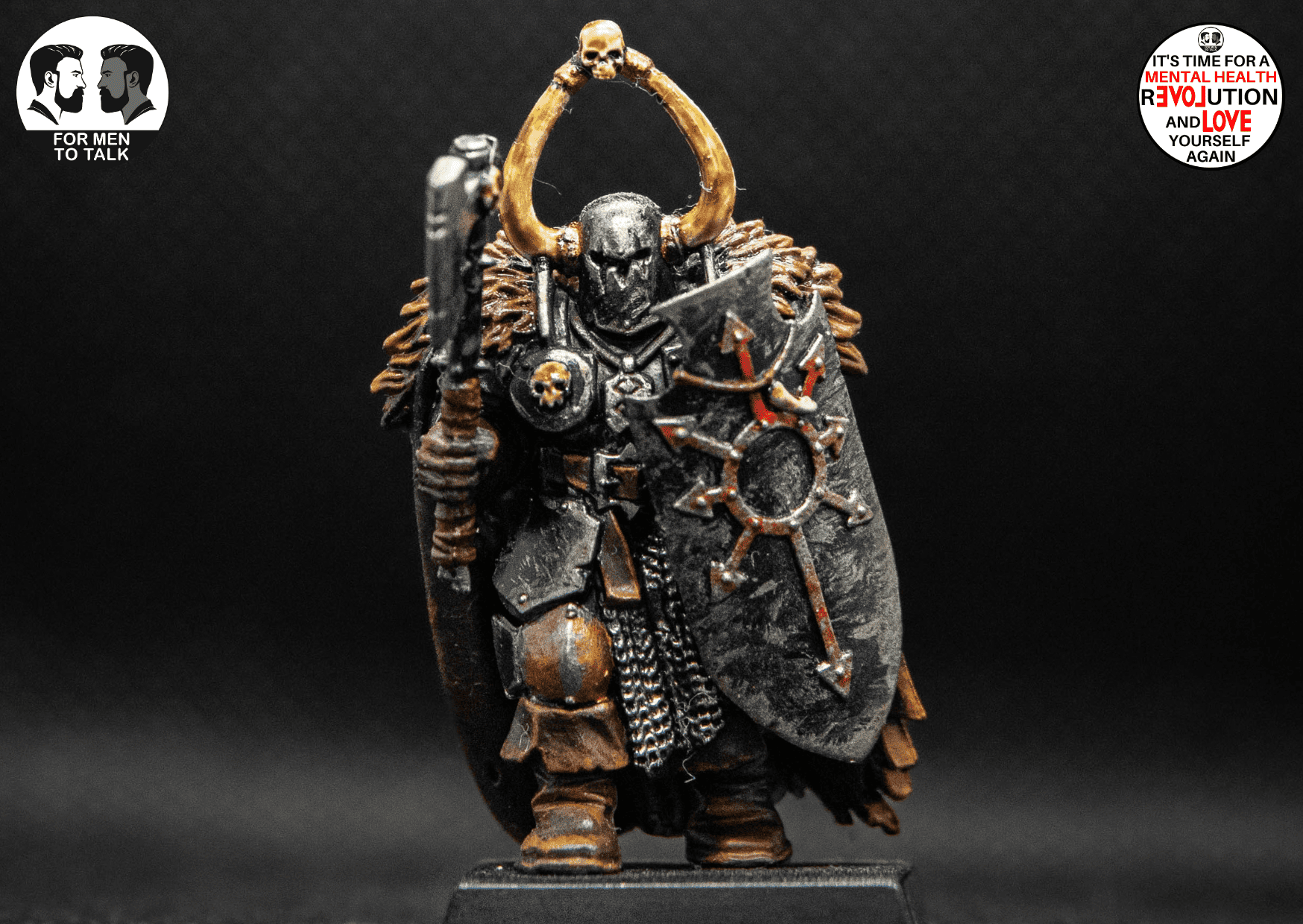How Warhammer helps with men’s mental health

In recent years, there has been a growing recognition of how hobbies and creative outlets can positively impact mental health. One such activity that is gaining attention is the tabletop miniature wargame Warhammer. With its intricate world-building, creative modelling, and strategic gameplay, Warhammer has become more than just a game—it is a sanctuary for many men seeking to improve their mental well-being.
Creativity and Stress Relief
One of the most appealing aspects of Warhammer is the creative element involved in assembling, painting, and customising miniature models. This hands-on activity allows players to channel their artistic skills, helping to shift focus away from the pressures of daily life. For many men, stress and anxiety stem from work or personal obligations, leading to feelings of frustration or burnout. Warhammer provides an escape from this by offering a space where they can immerse themselves in creative expression.
The act of painting miniature warriors, crafting detailed landscapes, and imagining complex medieval battles serves as a form of art therapy. Focusing on these small details requires concentration, allowing players to enter a state of “flow,” where external worries and anxieties temporarily fade. The satisfaction of creating something tangible—whether it’s a beautifully painted dragon or a detailed castle—gives a sense of accomplishment, which can boost self-esteem and provide a positive emotional outlet.
Social Connections and Support
Another significant mental health benefit of Warhammer is the sense of community it fosters. Many men struggle with social isolation or have difficulty building meaningful connections. Warhammer offers a solution by bringing people together through a shared interest. Whether it’s at local game stores, clubs, or conventions, players regularly meet to discuss strategies, trade models, and engage in competitive play.
These social interactions go beyond the surface level. The Warhammer community is known for being inclusive and supportive, making it easier for men to form friendships and build connections. This social aspect can be particularly important for those experiencing loneliness or dealing with mental health challenges, as having a strong support network can play a critical role in recovery and well-being.
Additionally, the friendships formed through Warhammer can extend beyond the game. Players often bond over shared experiences, offering each other encouragement both in and out of the game. Whether it’s talking through personal challenges or simply enjoying a sense of camaraderie, these relationships help men develop a deeper sense of belonging.
Strategic Thinking and Problem-Solving
Warhammer is not just a game of chance; it requires strategic thinking, problem-solving, and tactical planning. The game’s mechanics involve careful consideration of movement, positioning, and resource management, with dice rolls adding an element of unpredictability. This intellectual engagement helps stimulate the brain and can improve cognitive function.
For many men, engaging in strategic thinking can be both mentally stimulating and rewarding. It provides a way to exercise their minds and sharpen their decision-making skills. Additionally, the challenges presented in the game mirror real-life scenarios where thinking critically and adapting to changing circumstances are key to success. This aspect of Warhammer encourages resilience and the ability to cope with stress.
Mindfulness and Escapism
Warhammer’s intricate fantasy world, filled with wizards, dragons, and epic battles, allows players to escape into a different realm. This escapism can be particularly beneficial for men dealing with anxiety, depression, or other mental health issues, as it offers a break from the struggles of everyday life. Immersing oneself in a different reality, even for a few hours, can help to reduce feelings of stress and provide a mental reset.
The game also promotes mindfulness, as players must be present and attentive to detail when painting models, setting up the battlefield, and engaging in gameplay. This mindfulness can have a calming effect and help individuals focus on the present moment, which is a common therapeutic technique for managing anxiety and depression.
Conclusion
Warhammer is much more than a tabletop game; it is a creative and social outlet that has helped many men improve their mental health. Through creative expression, social connections, strategic gameplay, and mindfulness, Warhammer offers a holistic way to reduce stress, combat loneliness, and enhance overall well-being. As more men discover the mental health benefits of this immersive and community-driven hobby, Warhammer continues to serve as a powerful tool for mental resilience and support.